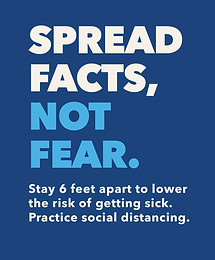
FIGHTING COVID AT HOME
Soothing COVID-19 isolation anxiety
We are all facing the enormous challenge of controlling and eradicating a fast moving and dangerous virus. There is much we don't know yet about coronavirus (COVID-19), but what we do know is we have the power to halt it and protect one another by practising physical distancing or self-isolation and good personal hygiene. We do this to save lives.
While we do the important and difficult work of living in physical distance or isolation from one another, we need fortitude of mind and body to cope.
For up to date information, advice and facts on COVID-19 (coronavirus) visit preview.nsw.gov.au/covid-19 and follow NSW Health on Facebook and Twitter.
Lifting the spirits without "spirits"
The World Health Organisation (WHO) urges us to "avoid using unhelpful coping strategies such as tobacco, alcohol or other drugs". They caution that doing this can worsen "mental and physical wellbeing", particularly as many of us spend large amounts of time on our own and under stress about the impact of COVID-19.
Alcohol can temporarily make you feel relaxed or good, however alcohol can be additive and drinking a lot in a short time, or a lot of alcohol regularly over time, is likely to cause problems for your physical, emotional and social health.
Like any other toxic substance, alcohol should be treated with caution. Using alcohol to cope can compromise your health as it impacts, among other things:
-
Your body's ability to regulate sleep, directly impacting your immune function
-
Affects judgement, sight and co-ordination, which often causes accidents – especially falls
-
It can cause frequent infections
-
Impact your ability to concentrate
-
Have a detrimental effect on your relationships
"During this difficult time, it's important to continue looking after your physical and mental health. This will not only help you in the long-term, it will also help you fight #COVID19 if you get it" – Dr Tedros Adhanom Ghebreyesus, Director-General of the WHO
In Australia, as in many cultures, alcohol is associated with social activity. In this time of crisis many people are or may be tempted to hoard alcohol to 'get through'. Many of the messages out there in our online and social landscape suggest 'just add booze' to make things easier, more fun or get intimate. But just because the message is seductive or omnipresent, doesn't make it true. Hoarding and using alcohol as an emotional crutch will not help you through this difficult time. Knowing how to make your own fun and look after yourself will!
Looking after yourself
They are a few simple pieces of advice you can follow to look after your mental and physical health during this time. Here are a few tips from NSW Health:
-
Stay connected – Keep in touch by phone, social media or video calls
-
Keep moving – Exercise to relieve stress (check to see if your regular gym, yoga studio or exercise outlet is holding online classes or check out YouTube or Vimeo for classes)
-
Stick to a routine – Keep regular sleeping and eating patterns (consider using sleep apps to keep track of your sleep routine)
-
Switch off – Take a break from the news if it feels overwhelming
-
Reach out – Activate your support network or reach out for professional help such as Lifeline 13 11 14, Beyond Blue 1300 224 636 or the NSW Mental Health Line 1800 011 511.
You can also call the 24/7 NSW COVID-19 Hotline on 13 77 88 for advice and assistance from Service NSW. Call the hotline for advice on the latest updates on restrictions, cost of living assistance, and financial support for businesses or rules around social distancing.
Know your limits
To reduce the risk of harm from alcohol-related disease or injury the National Health and Medical Research Council (NHMRC) provides the following advice, in their latest draft of the 'Australian guidelines to reduce health risks from drinking alcohol', they recommend:
-
Healthy men and women – no more than 10 standard drinks per week and no more than 4 standard drinks on any one day.
-
Pregnant women, breastfeeding or planning a pregnancy – not drinking alcohol is safest option for their baby.
-
Children and young people under 18 years of age - Should not drink alcohol.
The less you choose to drink, the lower your risk of alcohol-related harm. For some people not drinking at all is the safest option.
Managing your alcohol intake
Unsure if you're drinking too much? Try our online confidential risk assessment tool to determine if your drinking is putting your physical and mental health at risk.
To track and reduce your alcohol use, download the NSW Health Drinks Meter app. Drinks Meter is a free app that provides confidential and personalised feedback based on advice from doctors and the Australian guidelines to reduce health risks from drinking alcohol. The app allows you to track your alcohol intake, the amount of calories you are drinking, how much you're spending and set weekly goals to reduce and stay healthy.
Getting help
The relationship between alcohol and drug use and mental health is a complex one. Just like physical health, your mental health and wellbeing can have a huge impact on all aspects of life. If you notice that your alcohol or drug use is negatively effecting your mood and impacting on your life, it may be time to reach out for help.
For free and confidential advice 24/7 call Alcohol and Drug Information Service (ADIS) on 1800 250 015. Counsellors are available to provide counselling, information, referrals, and support. Or start a Web Chat with an ADIS counsellor online Monday to Friday, 8.30am – 5:00pm.
If you're concerned you have COVID-19, please call the national Coronavirus Health Information Line for advice on 1800 020 080. If you require translating or interpreting services, call 131 450.









